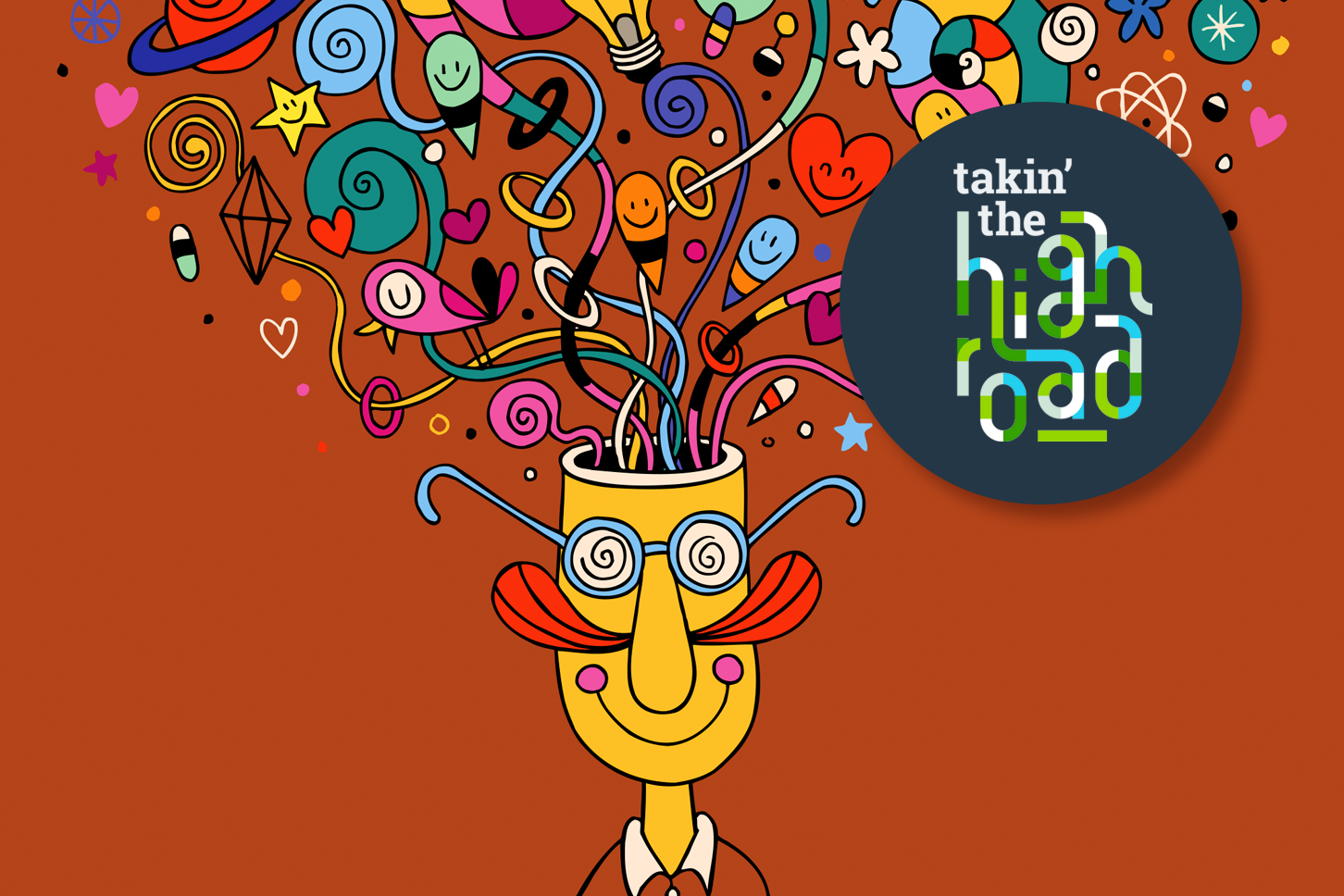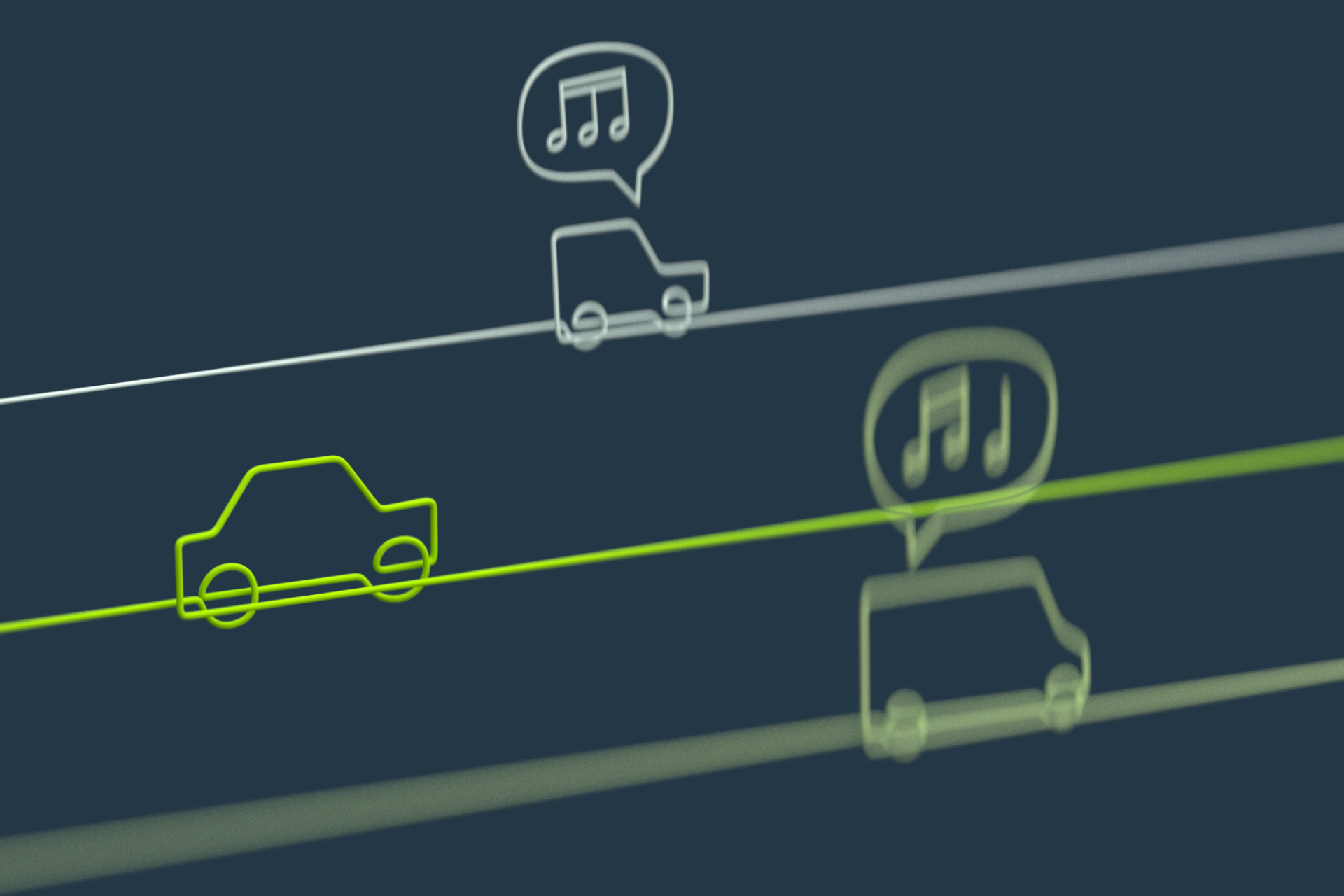Autism acceptance month: why mindfulness of others matters
April 2, 2022
April is a cool time of year. The weather is starting to warm up, flowers are beginning to bloom and there are fun holidays like National Pet Day. But to some, April is a month to celebrate and advocate for individuals and families affected by autism.
How’s it done? Through acceptance. We’ll show you why autism acceptance speaks volumes compared to awareness and why being a mindful person is everything. Because at HiRoad, we celebrate that.
Why is autism acceptance important?
Traditionally, the month of April has been a call for more awareness of autism. However, in the last few years, more organizations like, The
Autism Society of America and the autistic community as a whole have strived to make the messaging less about awareness and more proactive toward acceptance of those who are autistic.Why? While the work to spread awareness is extremely important and ongoing, there’s a larger need to promote acceptance so autistic individuals can live fully in all aspects of life. Acceptance is one of the larger barriers that individuals and families face when it comes to finding and developing a strong support system.
Acceptance ignites change through improved support and opportunities in these areas:
Education
Employment
Affordable and accessible healthcare
Long-term services
Accessible housing
Without acceptance, it can be more difficult for change to happen. Being aware and accepting around others who may be different from us—physically, mentally or intellectually—is key to being a mindful person.
To share some insight into what it means to be mindful of those around you and bring to light the importance of acceptance of those with autism, here are two folks from our team at HiRoad who share the journey of autism.
Jenn D.
“Traveling after two years of pandemic restrictions has been a transition for all of us, but especially so for my son, for whom routines and knowing what to expect are very important to keep him calm and organized. With spring came a travel opportunity this year. The snack on the airplane, something one might think is a fairly simple experience, quickly turned more complicated for us. The flight attendant, well-intended, I’m sure, tried to tell my son that he had to remove his headphones before she would hand him his snack.Perhaps she is a mom herself and thought, I’m going to help this mom out by giving her an extra hand. I was put into the somewhat awkward, but not new, position of explaining to her on a plane full of strangers that my son was not going to answer her, look her in the eyes or remove his headphones. Not because he is “misbehaving” but because he has made certain preparations to be able to fly. Planes are crowded situations, now layer on a mask and lots of lights and noises that are out of the ordinary. Once she knew the situation, the flight attendant was very understanding and accepting. I had to help call her attention and awareness to the fact that a difference in behavior is not always negative.
It's important to be mindful of those around you because you really don’t know what their situation is. Folks with autism often experience the world in what I like to describe as stronger, heavier or more intense. What might be an annoying noise for one person may escalate to a painful situation for someone else. Being mindful of this can go a long way toward building relationships and helping our fellow humans. One way we can do this is by being willing to ask questions and engage in conversations.
I had to be willing to gently tell the flight attendant our situation, but how cool would it have been if she instead asked me if I wanted help with my son first. How cool would it have been if she had inquired with curiosity why he was keeping his noise-canceling headphones on and not looking at her instead of assuming he was just “too plugged in” and not listening.”
Arissa D.
“Being mindful goes beyond your daily meditation. It starts at the core of who we are as human beings—to be mindful of those around us. When my son was diagnosed with autism, it felt overwhelming. But over the last three years, I’ve learned the value of being mindful of others.
People in our lives will never share the same life experience you do, whether they have special needs or not. It’s a beautiful aspect of this thing we call life. So one thing I practice in my own life when I’m around my son or meeting new people is to remind myself that this person is a human too. And just like me, this person wants to feel loved and accepted.
This is mindfulness. When I’m more mindful of others, it opens the door for acceptance because we understand what people need to live a full, productive life. When it comes to autism, I want people to understand that you can have all of the awareness in the world, but acceptance requires action.
I’m like any other parent out there who wants the best for their child. What’s best for my son or anyone with autism? Acceptance. Autism isn’t this scary thing that people should run away from.
My son sees the world differently, and that’s a pretty stellar thing. Being a parent of an autistic child has been a humbling and rewarding experience. The moments we get to share with him, as small and insignificant as they may seem, are worthwhile in our eyes.”
Being a mindful person goes beyond the road
So what does it mean to be a mindful person? The Greater Good Science Center at the University of California, Berkeley says mindfulness is “maintaining a moment-by-moment awareness of our thoughts, feelings, bodily sensations and surrounding environment, through a gentle, nurturing lens.”
Being mindful can allow us to foster selflessness and compassion for those around us. As a part of a talk at UC Berkeley's Greater Good Science Center, Jon Kabat-Zinn, author and scientist, shares why being mindful can help us become more compassionate.
“Compassion is the core, universal emotion.”
Jon Kabat-Zinn
He mentions that as human beings, we’re already compassionate. We’re good enough as we are. It’s a matter of uncovering our compassion, and mindfulness simplifies things enough to unlock who we are as compassionate people.
So how can you be a more mindful, compassionate person to those around you? Here are some tips to be more mindful of others:
Actively listen
Stay active in relationships
Keep others in mind
Volunteer
Find ways to show love
When you’re more mindful of those around you, with or without autism, you’re taking the high road. Mindfulness is something we’re big on at HiRoad, and we believe in the good. When we take the time to be more mindful of those around us and accept them for who they are, that translates to how we behave behind the wheel, leading to safer roads for everyone.
The information in this article was obtained from various sources not associated with HiRoad®. While we believe it to be reliable and accurate, we do not warrant the accuracy or reliability of the information. HiRoad is not responsible for, and does not endorse or approve, either implicitly or explicitly, the content of any third party sites that might be hyperlinked from this page. The information is not intended to replace manuals, instructions or information provided by a manufacturer or the advice of a qualified professional, or to affect coverage under any applicable insurance policy. These suggestions are not a complete list of every loss control measure. HiRoad makes no guarantees of results from use of this information.
Stay on the path
Get HiRoad in your inbox
Share your email to get the latest about our community of mindful drivers.



